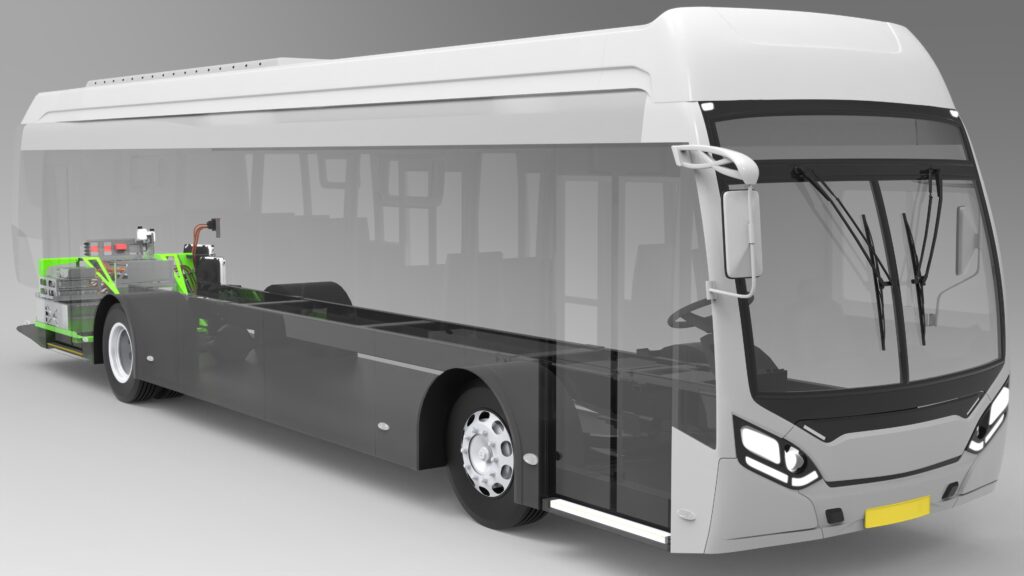Bus repowering company Kleanbus has revealed the first images of its advanced modular platform technology, which can turn any bus – whether single or double-decker – from ICE to fully electric quickly and cost-effectively.
Repowering is the process of removing the diesel engine or hybrid powertrain from an existing bus, and replacing it with a fully electric powertrain. Scarborough-based Kleanbus claims that it is the fastest and most cost-effective method to transition the UK bus fleet to zero-emission, and Kleanbus’s advanced solution can accelerate that changeover “thanks to the company’s unique technology”.
With poor air quality in cities reaching critical levels, decarbonising transport has become one of the greatest challenges of today’s time. Electrification is the most viable way for bus operators to go green, but new electric buses are expensive and can take many months to join a fleet from order placement to delivery, stresses Kleanbus.
The company’s co-founder and CEO, Joe Tighe emphasised that the country is facing “a major challenge to rapidly decarbonise the vital transport sector and is struggling to move quickly enough”.
He alluded to the fact that 97% of UK buses are powered by diesel engines that emit large amounts of carbon, oxides of nitrogen, and particulate matter.
It is important to note that the UK government has committed to funding 4,000 zero-emission buses (ZEBs), around 10% of the UK’s fleet, but so far there are just 697 ZEBs in service outside London, and funding is allocated for a further 2,125. London currently has around 800 ZEBs in service.
“Replacing these vehicles with new electric buses is very expensive for private companies and government subsidies will take many years given fleet turnover rates. Kleanbus offers a fast and efficient way towards zero-emissions, making buses cleaner, quieter, more comfortable, and more valuable assets for operators.”
State-of-the-art electric powertrain
Kleanbus’ proprietary system combines proven electric powertrain components from leading tier-1 suppliers and uses its own integration technology and software. The company says its “technology agnostic” approach allows it to leverage the most appropriate and latest power electronics, batteries, and motors, creating e-powertrains tailored to operator needs.
The e-motors used by Kleanbus also do not have permanent magnets, suggesting that they don’t use any rare earth materials, demanding less of the planet’s resources, according to the company.
Once a bespoke e-drivetrain has been designed and tested it takes less than two weeks to repower an individual bus, getting the vehicle back in service in as little time as possible.
Operating costs are also significantly lower, at a third of those of a conventional diesel bus, likely to be even greater with the latest new Bus Service Operators Grant (BSOG) Zero Emission Bus (ZEB) incentive of 22 pence per kilometre, factored in.
Kleanbus also observes that its electric repowered buses cost one-fifth of a new electric bus, and owing to its partnerships with innovative finance providers, operators can choose several ways in which to finance their vehicle – ranging from paying for the vehicle upfront and leasing the battery, to paying nothing upfront and leasing both the vehicle and the battery.
Development prototypes are already undergoing extensive testing programme in the east of England with the pilot programme with key bus fleet operators set to begin in Q4 2022.
